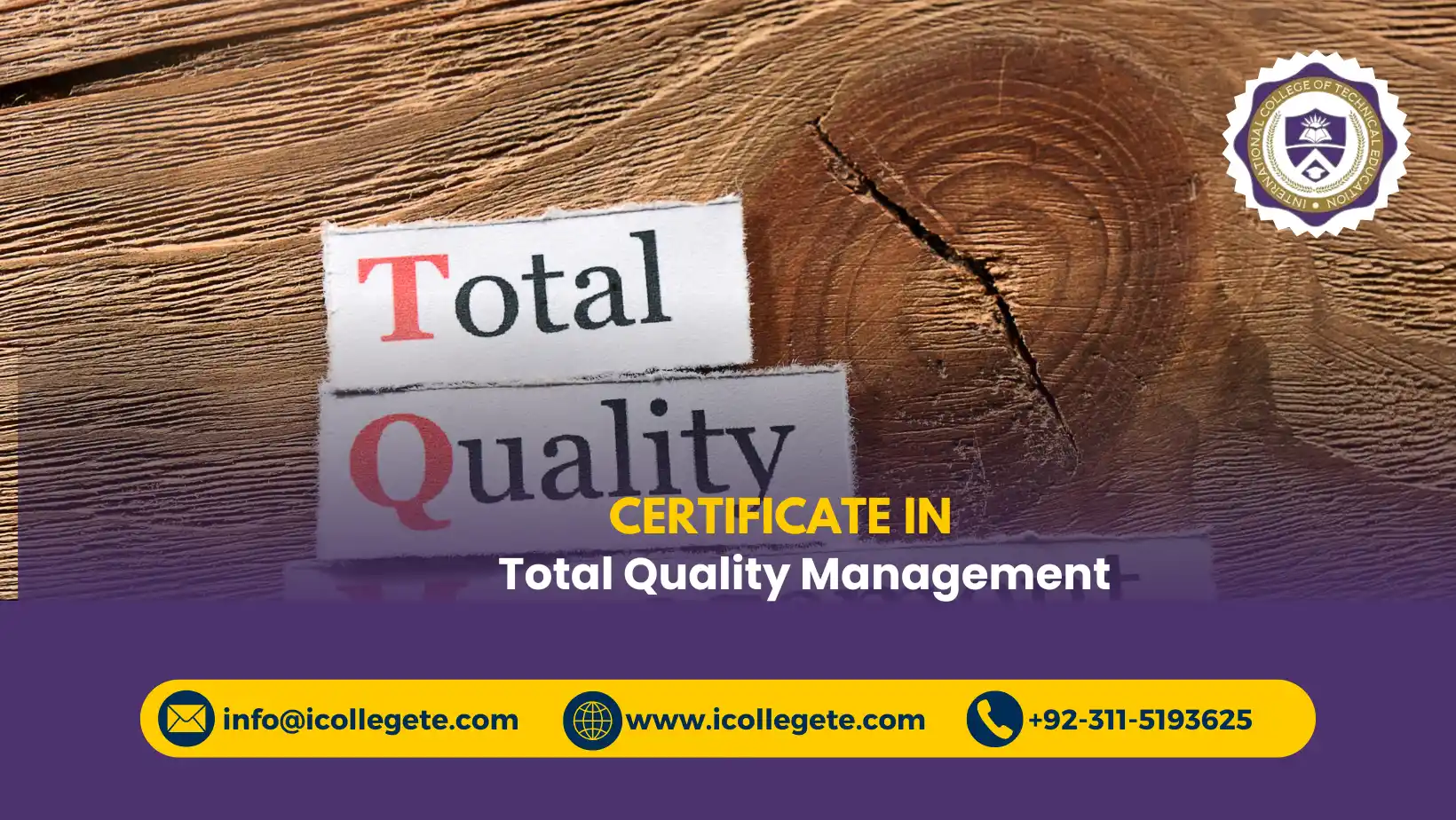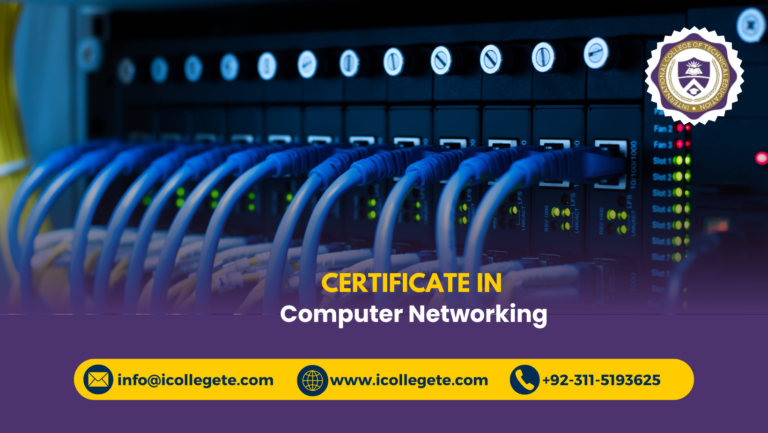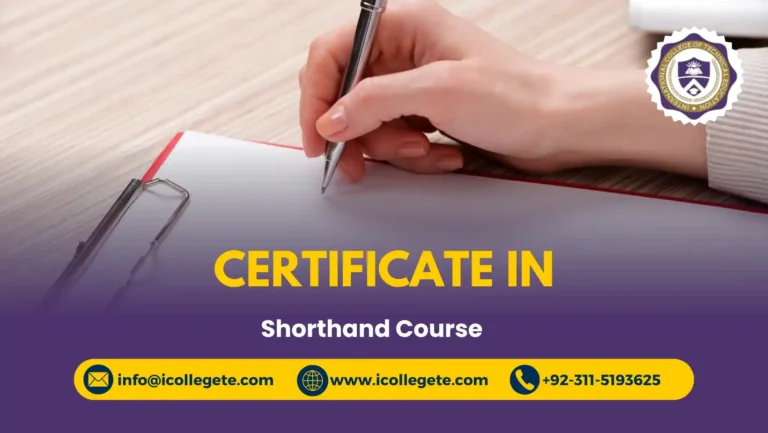Total Quality Management (TQM) is a holistic approach to improving organizational performance by fostering a culture of continuous improvement, customer satisfaction, and employee involvement. In Islamabad, the Total Quality Management course is designed to provide professionals with the skills and knowledge necessary to implement TQM principles effectively in any organization. This course emphasizes strategic quality management techniques, problem-solving, and the use of data to drive decision-making, which are essential for organizations aiming to achieve operational excellence.
The Total Quality Management course in Islamabad offers a comprehensive understanding of quality management systems and how they can be integrated across all levels of an organization. The course covers various TQM tools and methodologies, such as Six Sigma, Lean principles, and the PDCA (Plan-Do-Check-Act) cycle. Students will gain a deep understanding of how to develop quality-focused strategies, improve processes, and ensure customer satisfaction while fostering a culture of continuous improvement. The course combines theoretical learning with practical case studies and real-world examples to help students understand how TQM principles can be applied in diverse industries.
Study Units
The Total Quality Management course typically includes the following study units:
- Introduction to Total Quality Management: This unit introduces the core concepts of TQM, its historical development, and its importance in today’s business environment. Students will learn about the key principles that form the foundation of TQM.
- Quality Management Principles: This module covers the fundamental principles of quality management, such as customer focus, leadership, engagement of people, process approach, improvement, evidence-based decision making, and relationship management.
- TQM Tools and Techniques: Students will learn about various tools and techniques used in TQM, including root cause analysis, benchmarking, process mapping, and control charts, and how to use them to identify and solve quality-related issues.
- Six Sigma and Lean Methodologies: This unit introduces Six Sigma and Lean principles as part of the TQM framework. Students will learn about the DMAIC (Define, Measure, Analyze, Improve, Control) methodology, as well as the Lean approach for eliminating waste and optimizing processes.
- Quality Audits and Assessments: This unit focuses on the process of conducting quality audits and assessments within an organization to identify areas for improvement. Students will also learn how to implement corrective actions based on audit findings.
- Customer Satisfaction and Continuous Improvement: Students will understand the role of customer satisfaction in TQM and how organizations can continuously improve products, services, and processes to meet customer expectations.
- TQM in Practice: Case Studies and Applications: This unit provides real-world examples of organizations that have successfully implemented TQM principles. Students will analyze case studies to understand how TQM can be adapted to different industries.
Learning Outcomes
Upon completion of the Total Quality Management course, students will be able to:
- Understand the key principles and concepts of Total Quality Management.
- Implement TQM tools and techniques to identify and address quality issues in organizational processes.
- Apply Six Sigma and Lean principles to improve process efficiency and eliminate waste.
- Conduct quality audits and assessments to ensure continuous improvement in products and services.
- Foster a culture of quality within an organization by involving employees at all levels in the quality management process.
- Measure customer satisfaction and use feedback to improve organizational processes and outcomes.
- Lead quality improvement initiatives that align with organizational goals and customer needs.
Course Benefits
- Comprehensive Understanding: The course provides an in-depth understanding of TQM, allowing students to grasp both the theoretical and practical aspects of quality management.
- Enhanced Problem-Solving Skills: Students learn to identify problems, analyze root causes, and implement solutions using various TQM tools, leading to improved decision-making capabilities.
- Improved Organizational Efficiency: By learning how to apply TQM principles, students can help organizations streamline processes, reduce waste, and enhance productivity, leading to cost savings and higher profitability.
- Better Customer Satisfaction: The course focuses on customer-centric approaches, enabling students to implement strategies that improve customer satisfaction and loyalty.
- Increased Career Opportunities: Completing this course opens up career advancement opportunities in roles such as Quality Manager, Continuous Improvement Specialist, and TQM Consultant in a variety of industries.
- Global Competence: TQM principles are applicable across industries worldwide. Graduates of this course are equipped with globally recognized skills that can be applied in both local and international organizations.
Who Is This Course For?
The Total Quality Management course is suitable for:
- Managers and Leaders: Professionals in management roles who want to improve organizational performance and implement effective quality management strategies.
- Quality Assurance Professionals: Individuals working in quality assurance or quality control roles who want to expand their knowledge and expertise in TQM practices.
- Process Improvement Specialists: Professionals focused on process optimization and continuous improvement who wish to incorporate TQM techniques into their work.
- Business Consultants: Consultants who want to add TQM expertise to their skill set and assist organizations in achieving quality excellence.
- Aspiring TQM Professionals: Individuals looking to build a career in quality management and pursue roles in organizations implementing TQM frameworks.
Future Progression for This Course
After completing the Total Quality Management course, students can progress in the following ways:
- Advanced Certifications: Students can pursue advanced certifications in Six Sigma, Lean Management, or ISO 9001, which are complementary to TQM and offer further career development opportunities.
- Senior Quality Management Roles: Graduates can move into senior positions such as Quality Assurance Manager, Continuous Improvement Manager, or Director of Quality, leading TQM initiatives in large organizations.
- Consultancy and Training: With expertise in TQM, students can become consultants or trainers, guiding organizations in implementing TQM practices and providing workshops or seminars.
- Master’s Degrees: Individuals looking for further academic advancement can pursue Master’s degrees in fields such as Business Administration, Industrial Engineering, or Quality Management to specialize in leadership roles within the TQM field.
- Industry Specialization: Graduates can choose to specialize in specific industries such as manufacturing, healthcare, or service sectors, applying TQM principles to improve quality in those industries.
the Total Quality Management course in Islamabad offers invaluable knowledge and skills for professionals looking to enhance organizational performance and implement effective quality management systems. With a focus on continuous improvement, customer satisfaction, and employee involvement, this course provides students with the tools they need to succeed in today’s competitive business environment. Whether you are a manager, quality professional, or consultant, this course will equip you with the expertise to lead and drive quality initiatives in any organization.






